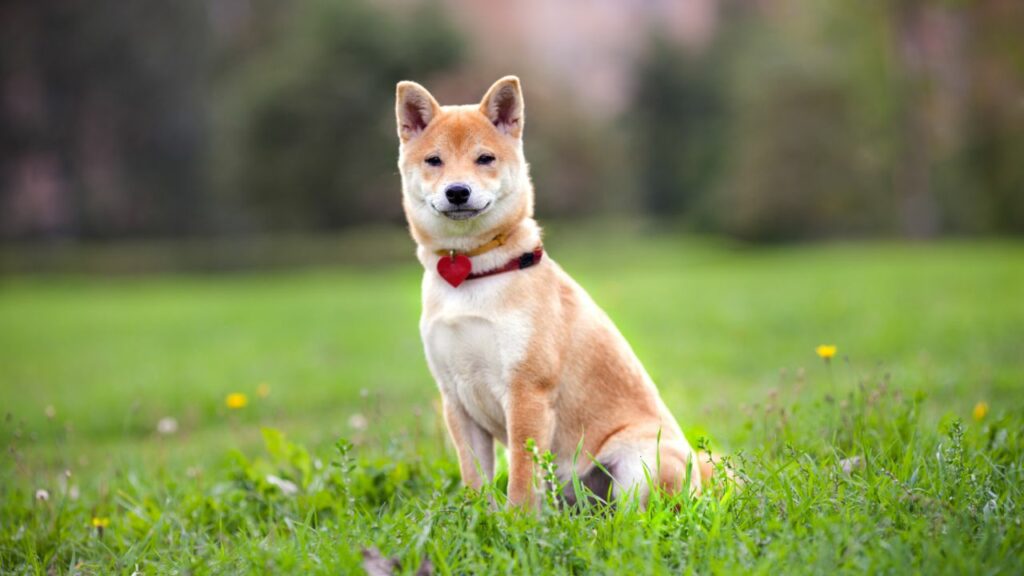WorldAnimalFoundation.org is reader-supported. When you buy through links on our site, we may earn an affiliate commission. Learn More
You don’t need a big dog to experience an abundance of love. Small breed dogs bring just as much joy, loyalty, and companionship, all packed into an adorable, compact size. While at WAF, we love dogs of every shape and size; small dogs come with unique benefits when you welcome them into your home.
Thanks to their smaller stature and lighter weight, small breed dogs are easier to handle and maneuver, whether you’re cuddling on the couch or heading out for a walk. Plus, with less fur, they require much simpler grooming routines.
These little companions are also perfect for travel, fitting comfortably in your car or even a handbag for those necessary trips. Research shows that small dogs often enjoy longer lifespans, typically living between 14-16 years.
However, a survey by the AKC involving over 1,200 small dog owners suggests that small dogs can be more excitable and less obedient, often barking or growling at strangers or other dogs. But don’t worry—we’ve got the inside track on the best small dogs that don’t bark. This means you can enjoy all the advantages of having a petite pooch without the noise. Let’s get to know these quiet, small breeds better.
Small Dogs that Don’t Bark
1. French Bulldog

French Bulldogs, or “Frenchies,” are known for their quiet nature, making them excellent companions for those who prefer less barking. These small dogs have a playful attitude and a gentle disposition, highlighted by their irresistibly cute, wrinkly cheeks that you might find yourself wanting to squeeze endlessly.
Frenchies enjoy their relaxation time, often spending hours napping or lounging on the sofa, which adds to their appeal as low-maintenance pets. They make perfect partners for movie marathons, though it’s worth noting that while they may not bark much, they do tend to snore, wheeze, and snort.
According to the PDSA, French Bulldogs are quite laid-back and adaptable, making them well-suited to families with children of any age. They are playful, which means supervision is wise during playtime with kids to ensure things don’t get too rowdy.
French Bulldogs can be a bit stubborn, which might pose some challenges during training. However, with a bit of persistence and a lot of patience, using positive reinforcement methods, training a Frenchie can be just as manageable as training the average dog.
2. Shiba Inu

The Shiba Inu is a small Spitz breed from Japan. Its manageable size and ease of housebreaking make it a great choice for apartment living. If you’re looking for a clean, playful dog that doesn’t bark much, the Shiba Inu could be the perfect match for you.
Originally bred for hunting, Shiba Inus are quick and intelligent. They tend to be reserved around strangers but are fiercely loyal to their owners once a bond is formed. While they are friendly and loyal, their patience can wear thin around children, making them less suitable as family pets.
Shiba Inus are notably independent and not overly needy, which means they don’t usually follow you around or bark for attention. However, they are known to make a high-pitched shrieking noise when excited or distressed.
Petplan notes that while Shiba Inus are highly intelligent and can be trained relatively easily, their strong-willed nature may present challenges. They sometimes lose focus and like to test boundaries, so consistent and patient training is necessary to manage their behavior effectively.
3. Japanese Chin

The Japanese Chin is a toy dog breed that is well-suited for apartment living and is not known for excessive barking. With flattened snouts and long coats, these dogs have lively temperaments and are ideal as affectionate lap dogs who thrive on human companionship. They are generally quieter than other breeds of similar size.
Japanese Chins are very loving towards their family members, though they tend to be reserved around strangers. While they are usually good with children, it’s important to supervise interactions to prevent accidental injuries due to their small size.
While not habitual barkers, Japanese Chins will alert their families to the presence of strangers or unusual sounds, demonstrating their protective instincts despite their petite stature.
According to PetMD, despite their history as palace companions, Japanese Chins have a moderate energy level and require daily physical activity. They benefit from short walks and playtime in a safe, fenced area, ensuring they remain active and content.
4. Boston Terrier

Boston Terriers are often recommended as one of the best small watchdogs, not for their propensity to bark but because they are attentive and alert. They are generally quiet dogs, though they may occasionally yap when excited or anxious, a trait some owners highlight by describing them as unusually calm.
Known for their friendly and affectionate demeanor, Boston Terriers make excellent family pets. They are also smart and eager to please, qualities that facilitate their training. However, they can exhibit a stubborn streak, which might require extra patience and persistence from their trainers.
According to My Family Vets, Boston Terriers are an ideal choice for first-time dog owners due to their amiable, intelligent, and loving nature. They adapt well to various living environments and are good with children. Despite their high prey drive, they usually coexist peacefully with other pets, making them versatile companions for diverse households.
5. Chinese Crested

The Chinese Crested dog comes in two varieties: the hairless and the powderpuff, both known for their affectionate and friendly personalities. Their unique appearance adds to their charm. Generally, Chinese Cresteds are quiet dogs, though they will bark to alert their owners to visitors or unusual stimuli, but they are not prone to unnecessary barking.
Their quiet nature is likely influenced by their affectionate disposition. Chinese Cresteds thrive on companionship and may experience anxiety if left alone for extended periods, a situation that often leads to excessive barking in other breeds. However, this breed typically remains calmer and quieter, especially when their emotional needs are met.
To support the Chinese Crested’s quiet temperament, it is crucial to provide them with ample exercise and mental stimulation. Engaging in activities like playing with toys and going for walks not only keeps them physically fit but also mentally sharp. Despite their small size, which makes them suitable for apartment living, they require gentle, consistent training starting from puppyhood to curb any potential bad barking habits effectively.
6. Italian Greyhound

The Italian Greyhound, often thought of as a “miniature Greyhound,” is a small, slender breed known for its affectionate nature and a fondness for snuggling. These dogs typically enjoy a quiet demeanor, though they might bark when excited or if they feel threatened. Their general lack of excessive barking makes them an ideal choice for those seeking a quieter canine companion.
According to WebMD, Italian Greyhounds are extremely affectionate and loving. Initially, they may appear shy and reserved around strangers, but they tend to show openness rather than aggression or viciousness. Not only are they athletic and agile, but they are also intelligent. However, their intelligence comes with a streak of stubbornness, which can sometimes complicate house training.
Given their moderate exercise requirements, sociable nature, and small size, Italian Greyhounds are an excellent option for first-time dog owners. They adapt well to various living environments, including apartments, making them versatile companions for a wide range of lifestyles.
7. Bichon Frise

Literally translated from French as “curly lap dog,” the Bichon Frise is a charming companion, easily recognizable by its fluffy, snow-white coat and expressive round black eyes. The Bichon Frise is typically a quiet breed, and excessive barking might indicate an underlying issue, as these dogs usually bark to make their presence known or alert their owners to something specific.
Bichon Frises are excellent for novice owners and are particularly well-suited for families with children and other pets, especially in homes where someone is usually present. They thrive on attention and companionship, making them ideal for active households.
According to WikiHow, Bichon Frises are highly trainable and motivated by their strong desire to please their owners. Nevertheless, they can show a stubborn streak, particularly when it comes to housebreaking, which can pose a challenge during training. Owners should be prepared to dedicate ample time for both training and engaging play.
8. Havanese

Havanese dogs are alert and energetic, yet notably not very vocal. While they don’t typically bark at everything, they can become a bit yappy when something unusual catches their attention, like a mailman or a stray squirrel in their yard.
Affectionately dubbed the ‘velcro dog,’ Havanese are known for their tendency to stick closely to their owners, providing a constant source of emotional support, often without even realizing it. Caring for a Havanese is relatively straightforward. Compared to other breeds, they require a moderate amount of grooming, which is manageable for most pet owners.
According to Pawlicy Advisor, as toy breed dogs, Havanese are well-suited for life in both apartments and houses. However, they do not do well when left alone for extended periods. The Havanese makes an excellent family pet, but prospective owners should ensure they have sufficient time to dedicate to their training, grooming, and exercise needs to keep them happy and healthy.
9. Coton de Tulear

Sweet, cuddly, and a bit clownish, the Coton de Tulear is a purebred dog known for its loving and adaptable nature. These dogs are friendly and get along well with almost everyone, making them excellent family pets.
The Coton breed might let out a solitary bark when a guest arrives, but they are more likely to greet strangers with an affectionate lick rather than anything more aggressive. The American Coton Club describes them as more of a warning barker than a nuisance yapper.
The Coton de Tulear is ideal for families looking for a loving companion that doesn’t require intense physical activities or rigorous training. However, potential owners should be aware that this breed can suffer from separation anxiety if left alone for extended periods.
While Cotons enjoy playing in the yard, they don’t demand constant entertainment or activity to stay content. This balance makes them a versatile and easygoing addition to many homes, accommodating a variety of lifestyles.
10. Shih Tzu

Shih Tzus are often surprisingly quiet for a dog breed, making them ideal for apartment living or any setting where excessive barking might be problematic. In fact, some owners note that their Shih Tzu rarely barks, contributing to a more serene household.
While generally reserved, Shih Tzus can be quite protective of their space. They are known to bark at unfamiliar faces entering their territory, but this behavior usually ceases once they recognize that the newcomer poses no threat to their family or themselves.
Shih Tzus are excellent family pets; they are gentle, fun-loving, and enjoy spending quality time with their human companions. Their sociable nature and mild exercise needs make them particularly adaptable to various living situations.
According to HillsPet, Shih Tzus are relatively easy to care for but are prone to weight gain if overindulged with treats. They don’t require strenuous daily exercise but do enjoy regular walks to keep them healthy and fit. Shih Tzus can also be successful in obedience and agility competitions, showcasing their ability to learn and perform various tasks with some training.

Wrap Up
For those seeking a peaceful home environment, choosing a quiet dog breed like the Cavalier King Charles Spaniel can be a wonderful decision. These dogs are renowned for their playful nature, yet they only bark occasionally, maintaining a serene atmosphere.
Whether you’re interested in the affectionate and sociable Cavalier King Charles Spaniel or other quiet dog breeds, you’ll find that these companions bring both joy and tranquility to your life without the constant noise.
Embrace the calm and discover how a quiet dog can make your home a more harmonious place to live.




